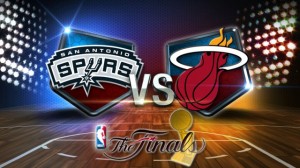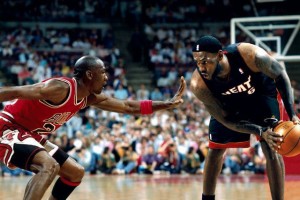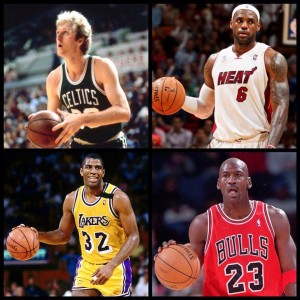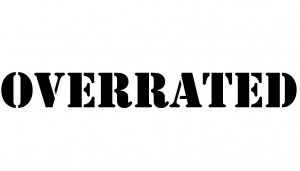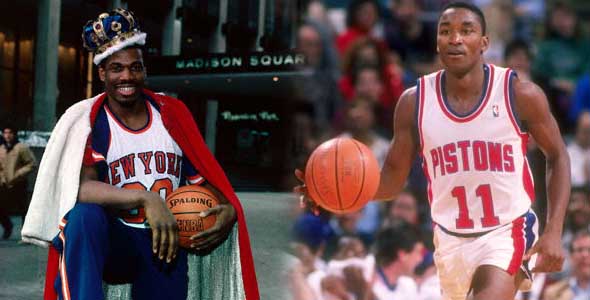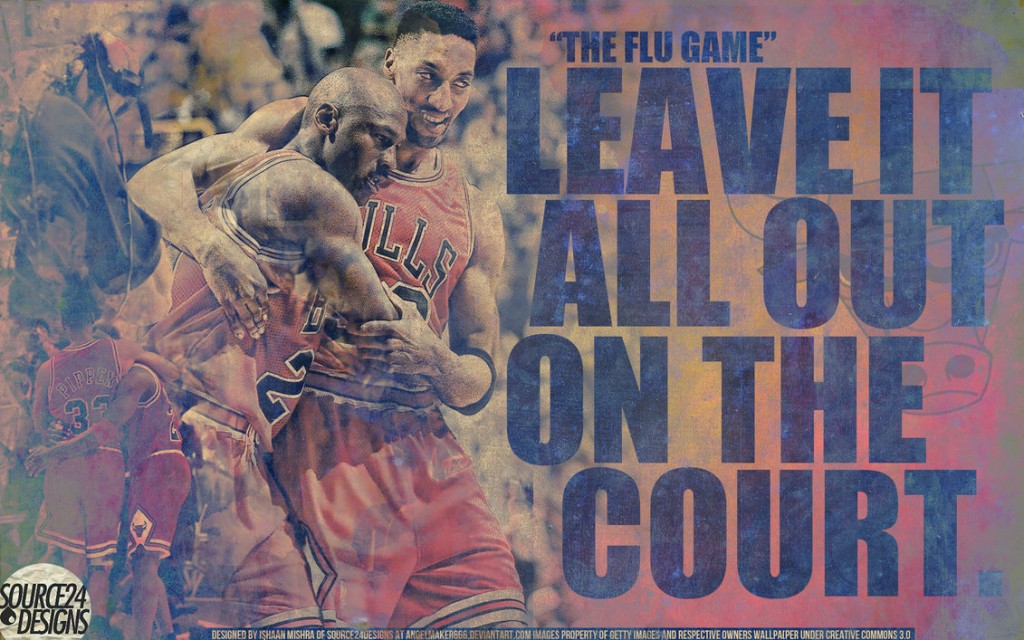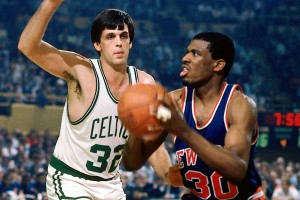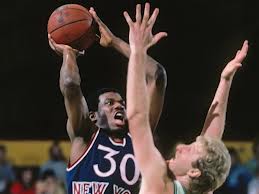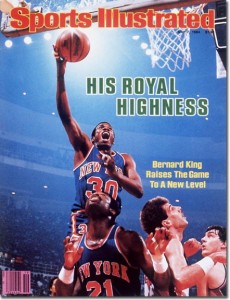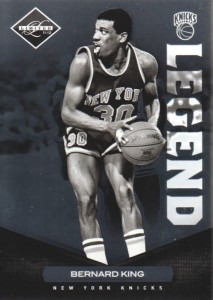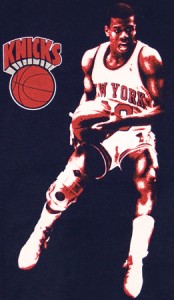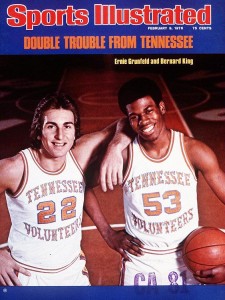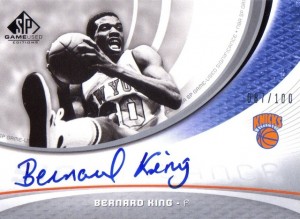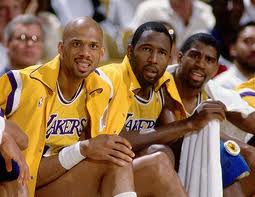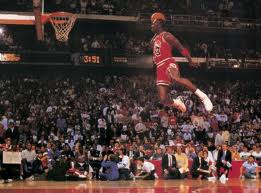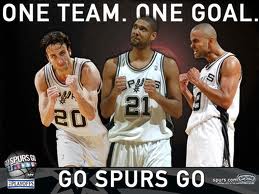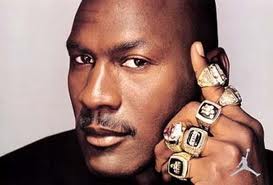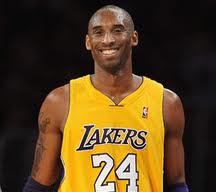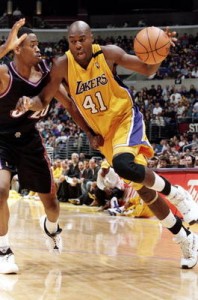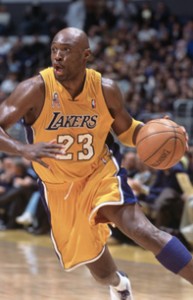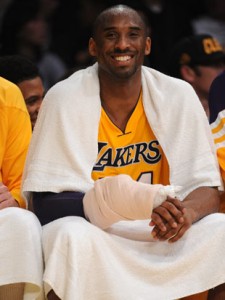B-ball fans, I didn’t get a chance to watch Heat-Spurs Game 6 the other night. I was in the midst of a great camping trip with the wife, but we both caught the second half of the game on ESPN radio. Just got a chance to watch the recorded game earlier, and I must say this was a good one. The game made me mull over some things and I wanted to make a couple of observations. Bear with me.
“Are you willing to go down the stretch of an elimination game with your second best player sitting on the bench to put more shooting around your best player? Tough decisions if you’re a coach.” – Jeff Van Gundy, when Dwyane Wade subbed in for Mike Miller at 3:48 left in the 4th quarter
The lineup that brought the Heat back from down 10 at the beginning of the 4th to up 3 later in the quarter was Mario Chalmers, Ray Allen, Mike Miller, LeBron, and Birdman. JVG noted this was also the lineup that blew open Game 2 for them… Miami’s best lineup might contain only one member of their “Big 3”. Take a minute to let that sink in. Miami’s best lineup might contain only one member of their Big 3. When D Wade came back into the game, LeBron stopped being as aggressive, some chemistry seemed lost, and the Spurs eventually took the lead.
The Takeaways…
A. Been told y’all from the beginning “The Decision” was not a good look, on multiple levels. The same people who were championing The Big 3 coming together are the same people now talking about trading Wade (a Top 5, 10, 15, 20 player, however you want to look at it) or bringing him off the bench so that he doesn’t bother LeBron’s rhythm… So that the Heat can be more effective… Because they are not as effective with both of them in the game.
B. The Cavs management were not as dumb we thought. In Cleveland, LeBron had shooters to space the floor, post defenders, rebounders, and finishers. That’s all he needs, or seems to want to play with. I don’t ever want to hear “LeBron needs help” again. He doesn’t need the type of player you might naturally think he does to win with his current style of play. He is playing with two perennial All-Stars and has yet to make either one of them better or find a workable chemistry with either. Who he is “making better” and finding greater success with is his team’s role players. He is playing at his best, and most comfortably, with a solid point guard, two shooters, and a rebounder/finisher.
C. Dwyane, LeBron, and Bosh have never had great offensive chemistry. The only way they all worked was by them (primarily Dwyane and LeBron) creating havoc on defense, creating steals and getting out and running in transition. When they are not creating turnovers, or when a team is able to stop their transition offense, they limit their effectiveness (at least in how they want to play). This is how you have a Ray Allen looking like he’s possibly more effective than Dwyane Wade for any stretch of time. Ray Allen has value just standing in a half-court set without the ball (he stretches the defense); Dwyane Wade does not.
D. The Heat will not be able to play their most effective lineups for the majority of Game 7 because there is no way Erik Spoelstra is going to bench Dwyane Wade. There is no way he is going to play Bosh for 20 or less minutes. Conversely, there is no way he is going to bench LeBron for 10-15 minutes to let Wade work (also a slightly positive +/- against the Spurs without LeBron on the floor). Because of real life dynamics, the Heat will probably try to win Game 7 using less efficient lineups… They have more talent than the Spurs but worse chemistry. We’ll see which one wins out tonight. The Heat still have a good chance because their talent is supreme and they are playing at home; We’ll see how it goes.
E. I only heard part of the 3rd and the 4th quarter of the game on the radio the other night, so I thought LeBron went into superhero mode in that 4th quarter. When I went back and watched the game though, I realized that he didn’t; he just played comfortable LeBron James basketball with that particular Chalmers, Allen, Birdman, Miller lineup. Now some people think LeBron is a superhero anyway so this could all be semantics, but I didn’t see a guy taking over the game. I saw a guy who was able to do what he does because of space, and knowing he was the 1st and 2nd best offensive option on the floor. LeBron just “did him” in that 8 minute stretch before Wade came in, and the result was a 13 point swing in favor of Miami.
F. Oh yeah, and as far as him choking or almost choking at the end of regulation, I can’t even call what I saw choking. Because I’m used to seeing LeBron tentative from time to time. In the last couple minutes of the game, he went back to looking like he did in Games 2 and 3. To me, “choking” refers to a guy being visibly shaken by the moment and nerves causing you to play at a level below what you are capable of. Choking to me is not missing shots or making bad passes. For instance, vs. Indiana Game 2 where Lebron made two late turnovers, I did not consider that a choke. LeBron was still being aggressive but just made two poor passes; it was poor execution. In Game 6 though, the turnovers he made were because he was being tentative. On the first turnover, he over-dribbled and on the second, I literally don’t know if he was trying to pass or shoot. His reactions to both of those turnovers further let me know these weren’t just poor execution turnovers. On the same hand though, I don’t know if you can “choke” and win the game. And even though he shot those late 3-pointers with what looked liked 20% confidence, one of them joints went in. If Ray Allen didn’t hit that corner three, it would have been a Cruel Summer, but I can’t say LeBron choked because his team won the game… AND LeBron did hit the three to cut it to 2 with 20 seconds left. He’s got to get credit for that. And after that he was very comfortable in the overtime and was key to helping his team win this game in that period. In my opinion, no choke should be credited.
